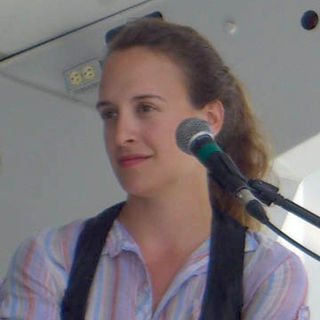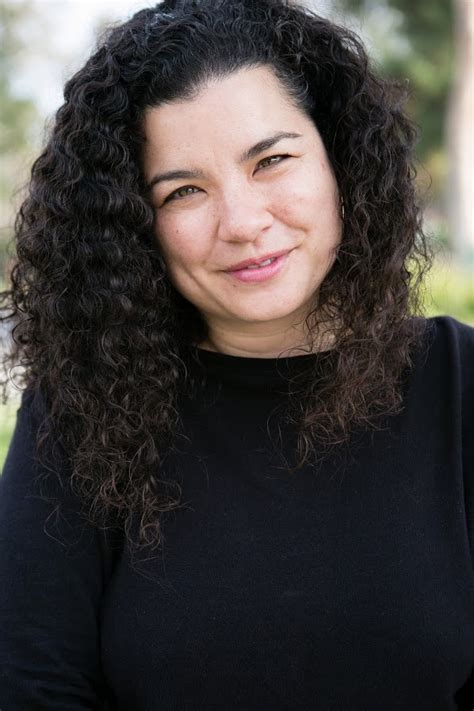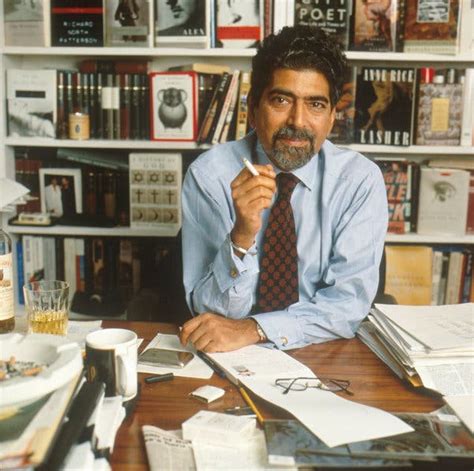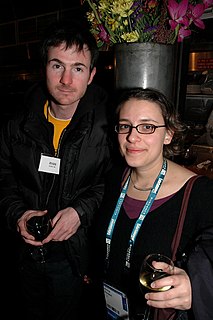A Quote by Emily Gould
No one ever addresses the possibility that a writer might not like her book.
Related Quotes
She's not like anyone I've ever seen before. When I'm not with her, I want to be. And when she opens the book and I see her face, I can barely remember what I'm supposed to say, much less how to speak at all." I test the words on my tongue. "I think I might be in love with her. But how can I really know, since the only love I've ever experienced was written for me?
Krys Lee has written a book of unforgettable stories, each one building on the other to create a complex, moving portrait of contemporary Korea and its diaspora. She guides us surely through the fallout of war, immigration, and financial crisis, always alert to the possibility of tenderness, transcendence, and even humor along the way. Lee is a writer who really understands loneliness, but her voice is so appealing, and her perceptions so wise, that we feel all the less lonely for knowing her characters and experiencing their lives.
Love your material. Nothing frightens the inner critic more than the writer who loves her work. The writer who is enamored of her material forgets all about censoring herself. She doesn't stop to wonder if her book is any good, or who will publish it, or what people will think. She writes in a trance, losing track of time, hearing only her characters in her head.
When Vanity kissed Vanity, a hundred happy Junes ago, he pondered o'er her breathlessly, and, that all men might ever know, he rhymed her eyes with life and death: "Thru Time I'll save my love!" he said. . . yet Beauty vanished with his breath, and, with her lovers, she was dead. . . -Ever his wit and not her eyes, ever his art and not her hair: "Who'd learn a trick in rhyme, be wise and pause before his sonnet there". . . So all my words, however true, might sing you to a thousandth June, and no one ever know that you were Beauty for an afternoon.
One of the most useful parts of my education as a writer was the practice of reading a writer straight through - every book the writer published, in chronological order, to see how the writer changed over time, and to see how the writer's idea of his or her project changed over time, and to see all the writer tried and accomplished or failed to accomplish.
Books are just dead words on paper and it is the readers who bring the stories alive. Previously, writers wrote a book and sent it out into the world. A couple of months after publication letters from readers might arrive. And, leaving aside the professional reviews, it is really the reader's opinions that the writer needs. They vote for a book - and a writer - with their hard earned cash every time they go into a bookstore (or online - that's my age showing!) and buy a book.
Read Becoming a Writer by Dorothea Brande. Then do what it says, including the tasks you think are impossible. You will particularly hate the advice to write first thing in the morning, but if you can manage it, it might well be the best thing you ever do for yourself. This book is about becoming a writer from the inside out. Many later advice manuals derive from it. You don't really need any others, though if you want to boost your confidence, "how to" books seldom do any harm. You can kick-start a whole book with some little writing exercise.
I like intersections. They're the nature of New York, and there's always the possibility that when you're at one you can meet someone new. Have I ever met anyone new at an intersection? No, but I like the idea of it. I like cities because if you're stopping on the corner to wait for a light to change, there's the possibility that you and somebody else can talk. And if you and that somebody else start to talk, then you can start to argue, and if you start to argue, you might start a revolution.






































